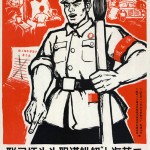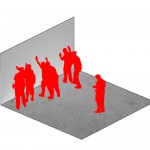
The New Deal and the New Order of Capitalist Institutions (1972)
To speak of the New Deal as a huge qualitative leap in the development of capitalist institutions – a leap that, precisely because it functions at a crucial point in the plot of capitalist society at a global level, has itself a special historical importance – seems to be a statement by now generally taken to be wholly correct. The matter was already settled in the mind of its greatest protagonist and in the ideology created around him that enthusiastically founded the “myth” of the New Deal’s “revolution”; and, if every myth must have a real justification, this one lay in the effective dismantling of the system in the rapid course of a decade. No less significant, at this level, is the bitter opposition from various positions that the New Deal came to provoke; these were attitudes that then, and not accidentally, flowed back against it in a wide underlying consensus.
 Viewpoint Magazine
Viewpoint Magazine







